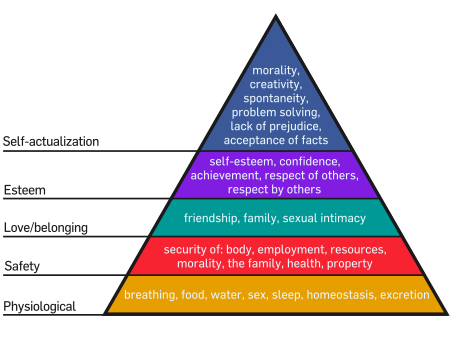 OK, so here is my answer to the last of the five questions I posed some weeks back.
OK, so here is my answer to the last of the five questions I posed some weeks back.
For me there is nothing difficult about this one.
Question 5. Do you ask enough questions? Or do you settle for what you know?
No, I don’t ask enough questions. In my view you can never ask enough questions and anyone who genuinely seeks after knowledge of any form will always have another question to ask. But there are times when you have to settle for what you already know.
It is only by asking questions, looking for something new and pushing the boundaries that we ever make progress. That was as true for stone age man banging his rocks together to make fire as it is now. It is the fundamental of the scientific method: ask questions and don’t believe anything until you can reliably demonstrate it; be forever skeptical.
We learn and generate our views by asking the age-old question: Why? Yes children keep asking “Why?” for a reason — to gain more knowledge of how the world works. (So maybe “Because” isn’t actually a good answer, however tempting it is!)
Society’s morals, ethics and beliefs are essentially the consensus view of the majority (or at least of those in whom we invest the power to decide, eg. politicians, clergy, etc.). Progress is made by philosophers and people like me questioning this consensus view; asking why we have these beliefs; suggesting that there are other, better, ways. Sometimes our views prevail. Most times we are ridiculed. In neither case is it certain if we are right or wrong — indeed in many instances there are no right or wrong answers, just answers which currently work. When our views prevail the consensus moves, society’s beliefs change and progress is made.

Science works in the same way. There is a sum total of knowledge; think of it as a boundary. Essentially there are two types of researcher who attack this boundary, trying to move it forward, as an army moves it’s battle-front forward foot by foot, mile by mile.
There are the pioneers who forge way ahead with off-the-wall thinking: “Oh look! A happens, and so does B. I wonder if that means X97C also happens?” Sometimes it does and suddenly there is a breakthrough at the battle front.
Then there are the supporters, the completer-finishers (in Belbin terms), who come along saying: “We know A, and B, and X97C, and Z23XM. But is this also true for C, D, E … Z …?” And they fill in the gaps behind the pioneers.
Both are moving the battlefront forward in their own way. But they can do so only by repeatedly asking questions. Questions are how we learn and how we make progress. So unless you want to stagnate you cannot ask enough questions.
But there is a corollary. You can never have all the information you need to make a decision. If you did it would not be a decision but a fait accompli. Indeed you can never have enough (let alone all) information to make a decision.
But decisions have to be made; there often (especially in business) isn’t time to acquire more information, let alone all the information one would like. Management, in fact life in general, is all about making the best decision one can with the information available at the time**. The best managers get these decisions right (or at least not wrong) more often than the less good managers. Those who have successes in life make averagely better decisions for them than those who who are always stumbling from crisis to crisis in life’s basement.
[** This is also why it is pointless, and destructive, to regret something you’ve done. You made the best decision you could at the time; we all do; it would take an alien mind not to. You did your best; you cannot do more. Yes, by all means learn something from the experience, but regret serves no purpose.]
But even then there may be no right and wrong answers, because part of the available information is one’s outlook on life, and who is to say my cautious approach to investments is better or worse for me than your more risky approach is for you?
So to sum up. Keep asking those questions. But in life know when to stop, consolidate and make that decision. In searching for knowledge, just keep right on.
— ooOoo —
So there we are, five answers to five deceptively simple, but actually quite challenging, questions. Questions which have made me ask more questions, and in answering them pose yet further questions. Questions whose answers have turned into little philosophical essays. Hopefully you’ve enjoyed, maybe even been challenged by, this mini-series. I hope to do another sometime soon, when I have more questions, ideas or challenges. Meanwhile suggestions are always welcome!




 OK, so here is my answer to the last of the
OK, so here is my answer to the last of the 
 Overweight? Under tall? P’ed off with being abused for it? Then read on.
Overweight? Under tall? P’ed off with being abused for it? Then read on. OK, so here is my answer to the fourth of the
OK, so here is my answer to the fourth of the 

 OK, so here, as promised, is my answer to the third of the
OK, so here, as promised, is my answer to the third of the 
 OK, so here’s my answer to the second of the
OK, so here’s my answer to the second of the